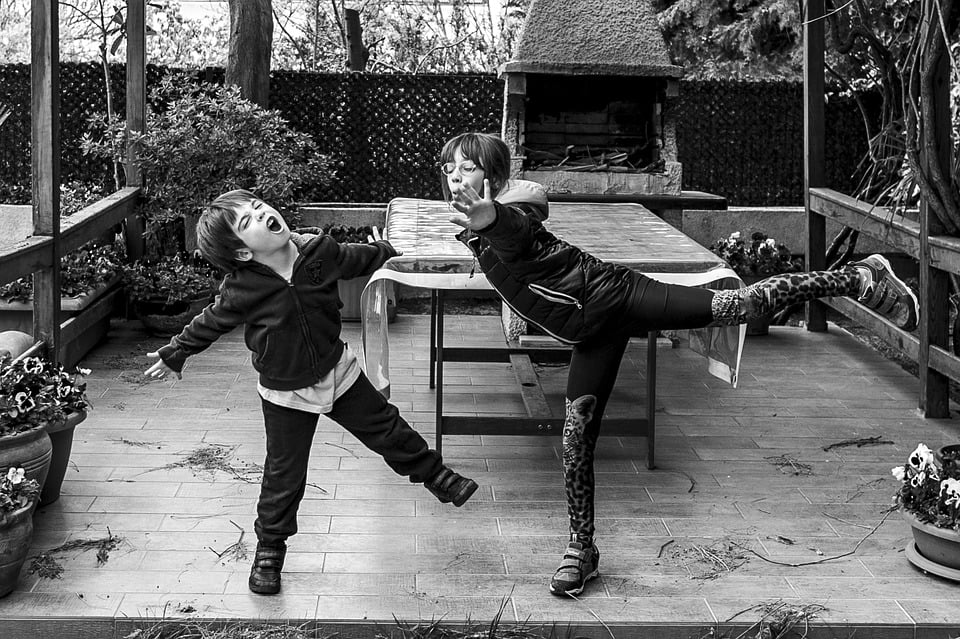
How good are you at expressing yourself physically and reading body language? Discover why body language is a key skill for social success!
Is there any subject more fascinating than body language? All my life, I've been interested in the art of body language in performance—as a singer, actor, communications professor, and speech coach. What we show, and the meanings and intensions we convey, are rich topics where stage performances are concerned.
Lately, however, I've been thinking of the importance of body language in social situations. My interest in that area was piqued anew by a newspaper interview last month with iconoclastic feminist, professor, and reliable provocateur Camille Paglia.
The article is an August 31, 2019 piece in The Wall Street Journal entitled "A Feminist Capitalist Professor Under Fire." For those who follow this cultural figure, that headline is about as startling as "The Sun Came Up this Morning," but as always, Paglia has something interesting to say.
Ready to boost your impact and persuasiveness when speaking to others? Download my free white paper, "The Body Language Rules: 12 Ways to Be a More Powerful Speaker."
Her concern as expressed in the article, is the "near-extinction" of body language among young people, and how that development impacts sexual relations on campuses. As those in this age group become increasingly absorbed in social media and online pursuits, they are losing the ability to read each other physically. Add to that a 1984 federal law raising the drinking age, and (according to Paglia), "18-year-olds away from home for the first time [aren't learning] the art of conversation, of looking at each other, reading facial expressions and body language." [1]

Body Language: It's Not Just for Public Speaking
Paglia believes that the consequences of misreading body language can be dire, even leading to hysteria and victimhood. As with (it seems) everything that Paglia says, there will be plenty of people who will disagree with the conclusion she draws here.
But can we agree that knowing how to read body language is a vital skill in determining intentions and motives? I think we can. It's interesting that most people don't fret about their body language until they're in front of a group of people, all of whom are watching closely what that person is showing. That's certainly one description of public speaking, which is where my work with clients and their body language comes in.
If you think about the nature of 'performance,' though, you'll realize that you're always on display. You're always showing something. And though the response may not be a conscious one in people's minds, they're taking in what they're seeing. Perhaps most important, they're making decisions about who you are and what you represent to them.
Why It's Important to Use Nonverbal Signals
Which means that you'll do well to consider your body language in any situation where you're responding to others. Think of it this way: the human brain is structured to give visual stimuli a high priority. A lot of real estate up there, in other words, is dedicated to figuring out what's happening based on what the brain is seeing, because doing so has a high survival value.
Anything you're showing, then, is bound to impact others strongly, and can even overrule other stimuli. In fact, if there's a disconnect between what we see and hear—if the person we're talking to shakes their head while saying 'yes' for instance—we believe the nonverbal. We'll discount that spoken 'yes' and go with the negative response we saw.
Do you know how to avoid undermining your own messages? Download my free eGuide, "Negative Body Language: 7 Deadly Sins of Nonverbal Communication."
It's never a good idea to become obsessed with body language (as some people do when they have to speak in public). And it's equally unproductive to plan your gestures, facial expressions, etc., because you quickly become mechanical and appear insincere. But this thought is worth internalizing: be aware that your physical expression matters.
Can you strengthen the link between how you feel and what you're showing by simply getting your body into the act? Sure you can. Will that help people through letting them see just how strongly you feel about what you're saying? Sure it will.
[1] Tunku Varadarajan, “A Feminist Capitalist Professor Under Fire,” The Wall Street Journal, August 31 – September 1, 2019, A11.
You should follow me on Twitter here.



